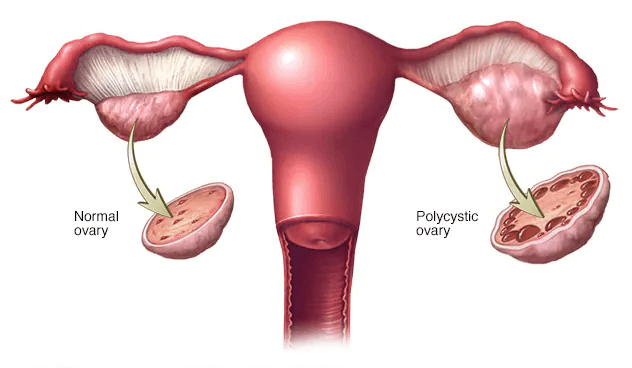PCOD and Fertility Issues | Link Between No Ovulation & PCOD

Title: How PCOD Affects Fertility: The Connection Between No Ovulation and PCOD
Polycystic Ovary Syndrome (PCOD) is a common hormonal disorder that affects women of reproductive age and is a significant reason for infertility. At Dr. Lodaya Hospital, recognized as the best fertility hospital in Haveri, we understand the complexities associated with PCOD and its impact on a woman’s fertility. This blog explores how PCOD leads to challenges in conceiving and what can be done to manage and treat this condition effectively.
Understanding PCOD and Its Impact on Fertility
PCOD disrupts the normal menstrual cycle and can severely compromise ovulation—the process necessary for conception. Women with PCOD typically have irregular or prolonged menstrual periods or an excess of male hormone (androgen) levels. The ovaries may develop numerous small collections of fluid (follicles) and fail to regularly release eggs.
Why PCOD Leads to Infertility
- Irregular Ovulation: The most direct impact of PCOD on fertility is through irregular ovulation. In many cases, women with PCOD do not ovulate regularly, which means there are fewer chances for an egg to be fertilized.
- Hormonal Imbalances: Women with PCOD often experience an imbalance in hormones. Elevated levels of androgens (often termed male hormones), which are typical in PCOD, can disrupt the development of eggs and their release. Additionally, insulin resistance, commonly associated with PCOD, can exacerbate hormonal imbalances, further affecting ovulation.
- Poor Egg Quality: PCOD can also affect the quality of the eggs produced by the ovaries, which can be another reason for infertility.
Understanding these factors is crucial for treating infertility in women with PCOD. At Dr. Lodaya Hospital, we offer the best treatment for infertility in Haveri, tailored to manage and mitigate the specific challenges presented by PCOD.
Addressing the Link Between No Ovulation and PCOD
No ovulation, or anovulation, is a common consequence of PCOD. Here’s how it can be addressed:
- Lifestyle Changes: One of the first recommendations for managing PCOD-related infertility involves lifestyle modifications. Weight loss, through a healthy diet and regular physical activity, can significantly improve fertility in women with PCOD. Even a small amount of weight loss can help restart regular ovulation and improve pregnancy chances.
- Medication: Medications that stimulate ovulation can be effective for women with PCOD. These medications help to regulate the menstrual cycle and prompt ovulation.
- In-Vitro Fertilization (IVF): If other treatments do not result in pregnancy, IVF may be considered. This involves retrieving mature eggs from the woman, fertilizing them with sperm in a lab, and implanting the embryos into the uterus.
Improving Fertility in Women with PCOD
At Dr. Lodaya Hospital, the best fertility hospital in Haveri, we focus on a comprehensive approach to improve fertility in women with PCOD:
- Tailored Treatment Plans: Each woman’s PCOD condition is unique. Our specialists provide personalized treatment plans that may include medication, lifestyle changes, and assisted reproductive technologies.
- Support and Counseling: Understanding PCOD and its impact on fertility can be overwhelming. We offer counseling to help our patients manage their PCOD symptoms and improve their overall health.
- Advanced Therapeutic Options: We utilize the latest advancements in medical science to offer the best treatment for infertility in Haveri, ensuring that our patients have access to the most effective care options.
Conclusion
PCOD is a complex condition that requires a nuanced approach to treatment, particularly when addressing associated infertility issues. Dr. Lodaya Hospital stands at the forefront of fertility treatment, offering specialized care to turn the hope of parenthood into reality for couples dealing with PCOD. If you are struggling with PCOD-related fertility issues, remember that effective treatments are available, and improvement is possible.


